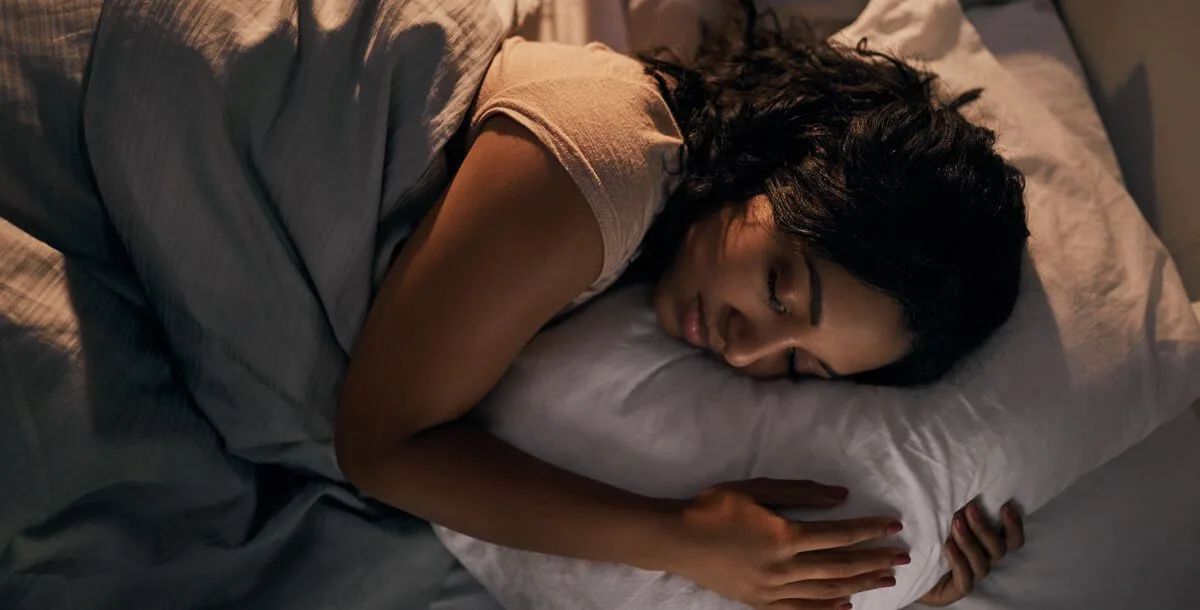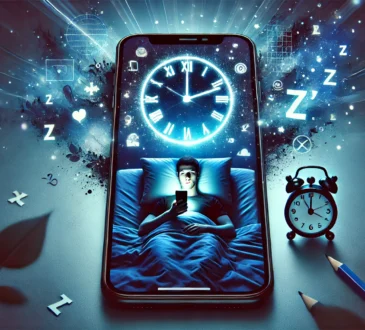Better health requires a healthy diet and adequate sleep with a good routine. Any deficiency in sleep duration and quality can affect complete physical and mental health. This is the reason that health experts recommend all people get an uninterrupted sleep of 6-8 hours every night. However, it is considered very necessary to have a suitable environment for good sleep. In studies, the habit of sleeping by lighting off at night has been described as better. People who maintain any light while sleeping may risk sleep-related problems.
Light exposure at night can disrupt the body’s normal circadian rhythm, the 24-hour internal body clock that controls your sleep/wake cycle. This can make it harder to fall asleep and wake up at the same time each day, and can also lead to less deep sleep, which is important for physical and mental health.
“Discover the Incredible Benefits of Halasana (Plow Pose) for Your Mind and Body!”
In addition, light exposure at night can suppress the production of melatonin, a hormone that helps regulate sleep. Melatonin levels naturally rise in the evening and fall in the morning, and exposure to light at night can interfere with this natural rhythm.
If you’re used to sleeping with the lights on, it may be difficult to change your habits at first. However, there are a few things you can do to make the transition easier.
For better sleep Following this may be helpful
- Start by dimming the lights in your bedroom before bedtime.
- Use a nightlight if you need some light in the room, but choose one that emits a dim, red light.
- Avoid using electronic devices in the hour before bed, as the blue light emitted from these devices can also interfere with sleep.
- Create a relaxing bedtime routine that helps you wind down before bed.
With a little effort, you can learn to sleep in the dark and enjoy all the benefits that good sleep has to offer.
Here are some of the benefits of sleeping in the dark:
Sleeping in a dark environment, also known as sleeping in complete darkness, offers several significant benefits for your health and overall well-being. Here are some of the advantages:
- Improved Sleep Quality: Darkness promotes the production of melatonin, a hormone that regulates sleep-wake cycles. When you sleep in the dark, your body can produce adequate amounts of melatonin, leading to better sleep quality, deeper sleep, and a more restful night.
- Enhanced Circadian Rhythm: Darkness helps reinforce your body’s natural circadian rhythm. The absence of light cues your body that it’s time to rest, making it easier to fall asleep and wake up at the appropriate times.
- Better Sleep Onset: Falling asleep can be more difficult when exposed to artificial light, especially blue light emitted by electronic devices. Sleeping in the dark helps you fall asleep faster and with less difficulty.
- Reduced Risk of Sleep Disorders: Creating a dark sleep environment can lower the risk of developing sleep disorders like insomnia and sleep apnea, as these conditions can be exacerbated by exposure to light during sleep.
- Enhanced Melatonin Production: Darkness stimulates the production of melatonin, which not only aids in sleep but also offers other health benefits, such as antioxidant properties and potential immune system support.
- Improved Memory and Cognitive Function: Adequate sleep in a dark environment has been linked to improved memory consolidation and cognitive function, helping you perform better mentally during the day.
- Promotes Relaxation: A dark sleep environment can help create a sense of calm and relaxation, allowing you to unwind more effectively before bedtime.
- Supportive for Hormonal Regulation: Sleeping in the dark supports the proper regulation of various hormones in your body, including those involved in metabolism and appetite control.
- Positive Impact on Mood: Better sleep quality and a well-regulated circadian rhythm can have a positive impact on mood and emotional well-being.
- Potential Long-term Health Benefits: Consistently sleeping in the dark may have long-term health benefits, such as reducing the risk of obesity, diabetes, and other health conditions associated with poor sleep quality.
“Unlocking the Secrets of Cryptocurrency Mining: A Comprehensive Guide”
Here are some of the key concerns associated with sleeping with the lights on:
Sleeping with the lights on can have several potential dangers and negative effects on your health and well-being.
- Disruption of Circadian Rhythm: Exposure to artificial light during sleep can interfere with your body’s natural circadian rhythm, the internal biological clock that regulates sleep-wake cycles. This can lead to difficulties falling asleep, staying asleep, and waking up feeling refreshed.
- Reduced Melatonin Production: Melatonin is a hormone that helps regulate sleep. Bright light exposure, especially blue light emitted by electronic devices and LED lights, can suppress melatonin production and make it harder for you to fall asleep and maintain a restful sleep.
- Poor Sleep Quality: Sleeping with lights on, especially bright or flickering lights, can result in fragmented and lighter sleep. This can lead to reduced sleep quality and overall feelings of fatigue and tiredness during the day.
- Sleep Disorders: Prolonged exposure to artificial light during sleep has been linked to an increased risk of developing sleep disorders such as insomnia, sleep apnea, and restless leg syndrome.
- Increased Risk of Obesity: Some studies suggest that exposure to light during sleep may disrupt hormonal regulation related to appetite and metabolism, potentially leading to weight gain and an increased risk of obesity.
- Eye Strain: Sleeping with lights on can cause eye strain and discomfort, especially if the light is too bright or positioned incorrectly.
- Psychological Effects: Constant exposure to light during sleep might have psychological implications, such as increased stress and anxiety levels.
- Interference with REM Sleep: Rapid Eye Movement (REM) sleep is a crucial stage of the sleep cycle associated with dreaming and memory consolidation. Light exposure during sleep can disrupt REM sleep, affecting cognitive functions and emotional well-being.
To improve your sleep quality and overall health, it is recommended to create a sleep-friendly environment. Keep your bedroom as dark as possible, use blackout curtains or eye masks if needed, and avoid electronic devices with bright screens before bedtime. If you have concerns about your sleep patterns or sleep-related issues, consider consulting a healthcare professional or a sleep specialist for further guidance and evaluation.





